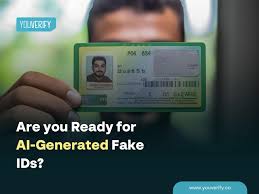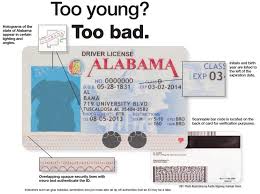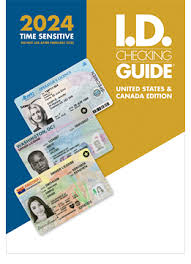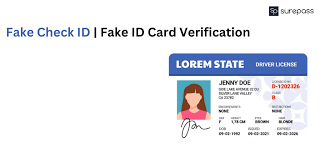fake ID for Washington
Table of Contents
- Introduction
1.1. Overview of Fake IDs and Their Appeal
1.2. Legal Landscape and Controversies
1.3. Purpose of This Article - Product Overview: What Makes Washington Fake IDs Unique?
2.1. Key Features of High-Quality Washington Fake IDs
2.2. Materials and Technology Used
2.3. Customization Options - Market Analysis
3.1. Demand for Fake IDs: Key Factors and Trends
3.2. Regional Popularity: Why Washington?
3.3. Competitive Landscape - Target Audience
4.1. Who Is Buying Washington Fake IDs?
4.2. Motivations: Why People Want Fake IDs
4.3. Psychographic and Demographic Profiles - Features vs. Benefits Analysis
5.1. Security Features: Holograms, UV, and Magnetic Strips
5.2. Ease of Use and Accessibility
5.3. Discretion and Privacy Considerations - Risks and Legal Considerations
6.1. Risks for Buyers
6.2. Legal Penalties: Overview of Washington State Laws
6.3. Mitigating Risks for Buyers - How to Choose the Best Fake ID Provider
7.1. Factors to Consider
7.2. Red Flags to Watch Out For
7.3. Recommended Best Practices - Conclusion: The Future of the Fake ID Market
8.1. Potential Market Shifts
8.2. Technology Advancements in the Industry
8.3. Final Thoughts
1. Introduction
1.1. Overview of Fake IDs and Their Appeal
Fake IDs have long been associated with young adults seeking to bypass legal restrictions on age-restricted activities, such as purchasing alcohol, entering clubs, or gambling. However, the demand for these counterfeit documents extends beyond mere recreation. The market for fake IDs has evolved to serve a range of needs, from students looking for age flexibility to those navigating strict identification policies.
In Washington State, the allure of fake IDs remains high due to the region’s vibrant nightlife, local events, and age-restricted venues. However, the rise in regulatory oversight has also prompted vendors to innovate, creating products that mimic the authenticity of government-issued IDs almost perfectly.
1.2. Legal Landscape and Controversies
Despite the increasing sophistication of fake IDs, their use is illegal across the United States, including Washington. State laws outline heavy penalties for possession, usage, and distribution. Nevertheless, the market thrives, fueled by demand and advancements in counterfeit technology. This article aims to explore the nuances of this market, including product features, demand drivers, and key legal considerations.
1.3. Purpose of This Article
This article offers a comprehensive overview of the Washington fake ID market, providing detailed insights into the product itself, market trends, audience motivations, and key considerations for buyers. Whether readers are curious about the product’s unique aspects or wish to explore the risks involved, this guide will serve as a valuable resource.
2. Product Overview: What Makes Washington Fake IDs Unique?
2.1. Key Features of High-Quality Washington Fake IDs
Washington State IDs are known for their detailed design elements, making them a challenge for counterfeiters. Quality fake IDs aim to replicate:
- State seal holograms
- Microprinting and tactile text
- Custom barcodes for verification
- Fine-grained photo and text alignment
2.2. Materials and Technology Used
High-end vendors employ advanced printing methods such as polycarbonate layering, embossing, and UV-reactive inks. Some use RFID chip technology to mimic state-issued IDs' scannable features. Proper lamination ensures durability, matching the sturdiness of real IDs.
2.3. Customization Options
Top-tier providers offer customization that aligns with a buyer's specifications, including photo updates, height and weight adjustments, and personalized signatures. This level of detail ensures the fake ID matches the user’s profile and reduces the chance of scrutiny.
3. Market Analysis
3.1. Demand for Fake IDs: Key Factors and Trends
Several factors drive the fake ID market:
- Social Pressure: Young adults desire access to events and venues where age restrictions apply.
- Economic Incentives: Workers in specific industries (e.g., bartenders) may seek fake IDs to avoid restrictions.
- Stringent Regulations: The stricter the legal framework, the higher the demand for counterfeit documents.
3.2. Regional Popularity: Why Washington?
Washington is home to bustling nightlife, festivals, and college towns like Seattle and Pullman. With many establishments enforcing strict ID policies, the demand for reliable fake IDs grows. Furthermore, neighboring states with more lenient rules also create cross-border demand.
3.3. Competitive Landscape
The market for fake IDs is highly competitive, with providers differentiating themselves by focusing on quality, speed, and discretion. Some operate through the dark web, while others leverage social media platforms for outreach.
4. Target Audience
4.1. Who Is Buying Washington Fake IDs?
The target audience consists primarily of:
- College students
- Young professionals
- Underage patrons of nightlife events
4.2. Motivations: Why People Want Fake IDs
- Access to clubs and bars: The main reason is to enter age-restricted venues.
- Discount eligibility: Some users seek fake IDs to qualify for age-specific promotions.
- Avoiding curfew or restrictions: Young adults may use them to bypass regulations tied to age.
4.3. Psychographic and Demographic Profiles
Most buyers are between 18 to 20 years old, with a focus on individuals living in urban or college-dense areas. Risk-tolerant personalities who prioritize social experiences are more likely to purchase fake IDs.
5. Features vs. Benefits Analysis
5.1. Security Features: Holograms, UV, and Magnetic Strips
Security features help fake IDs pass scrutiny during scans and visual checks. However, complex features also come at a higher cost for buyers.
5.2. Ease of Use and Accessibility
The usability of fake IDs relies on quality and acceptance across various establishments. The easier they are to scan, the more useful they become for users.
5.3. Discretion and Privacy Considerations
Discretion is paramount, especially for users who fear legal consequences. High-end vendors prioritize secure payment methods and untraceable transactions to protect buyers.
6. Risks and Legal Considerations
6.1. Risks for Buyers
Using a fake ID carries several risks, including:
- Arrest and fines
- Confiscation of the ID
- Bans from certain establishments
6.2. Legal Penalties: Overview of Washington State Laws
Washington law classifies possession of fake IDs as a misdemeanor, with penalties ranging from fines to community service. Distributors face harsher penalties, including imprisonment.
6.3. Mitigating Risks for Buyers
Buyers should be aware of local laws and exercise caution when using counterfeit documents. Avoiding overuse or presenting IDs at law enforcement checkpoints minimizes exposure to legal trouble.
7. How to Choose the Best Fake ID Provider
7.1. Factors to Consider
When selecting a fake ID provider, consider:
- Reputation: Check reviews and testimonials.
- Quality of materials: Look for realistic features.
- Turnaround time: Ensure timely delivery.
7.2. Red Flags to Watch Out For
Avoid vendors with:
- Unrealistic promises (e.g., lifetime use guarantees)
- Poor customer service
- Suspicious payment methods
7.3. Recommended Best Practices
Buyers should research thoroughly, compare vendors, and use secure payment methods. Connecting with others who have experience with the product can also help make informed decisions.
8. Conclusion: The Future of the Fake ID Market
8.1. Potential Market Shifts
As technology improves, fake IDs will become harder to detect, forcing law enforcement to adopt new countermeasures.
8.2. Technology Advancements in the Industry
Advancements such as AI-generated IDs and machine learning may enhance both the creation and detection of counterfeit IDs.
8.3. Final Thoughts
While fake IDs offer short-term benefits, they carry inherent risks. Buyers should weigh the pros and cons carefully and consider the legal implications before making a decision.
Creative Title Ideas
- "Unlocking Washington's Nightlife: A Buyer’s Guide to Fake IDs"
- "Navigating the Risks and Rewards of Washington Fake IDs"
- "Fake ID Essentials: Exploring the Market in Washington"
Creative Description Example
"Discover the ins and outs of Washington's fake ID market, from product features and market trends to legal considerations. This comprehensive guide helps you understand what makes these IDs unique, how to choose the right provider, and the risks involved in using counterfeit identification."
 Fake Driver’s License Kansas
Fake Driver’s License Kansas
 underage ID use
underage ID use
 Delaware Fake ID
Delaware Fake ID
 fake ID benefits
fake ID benefits